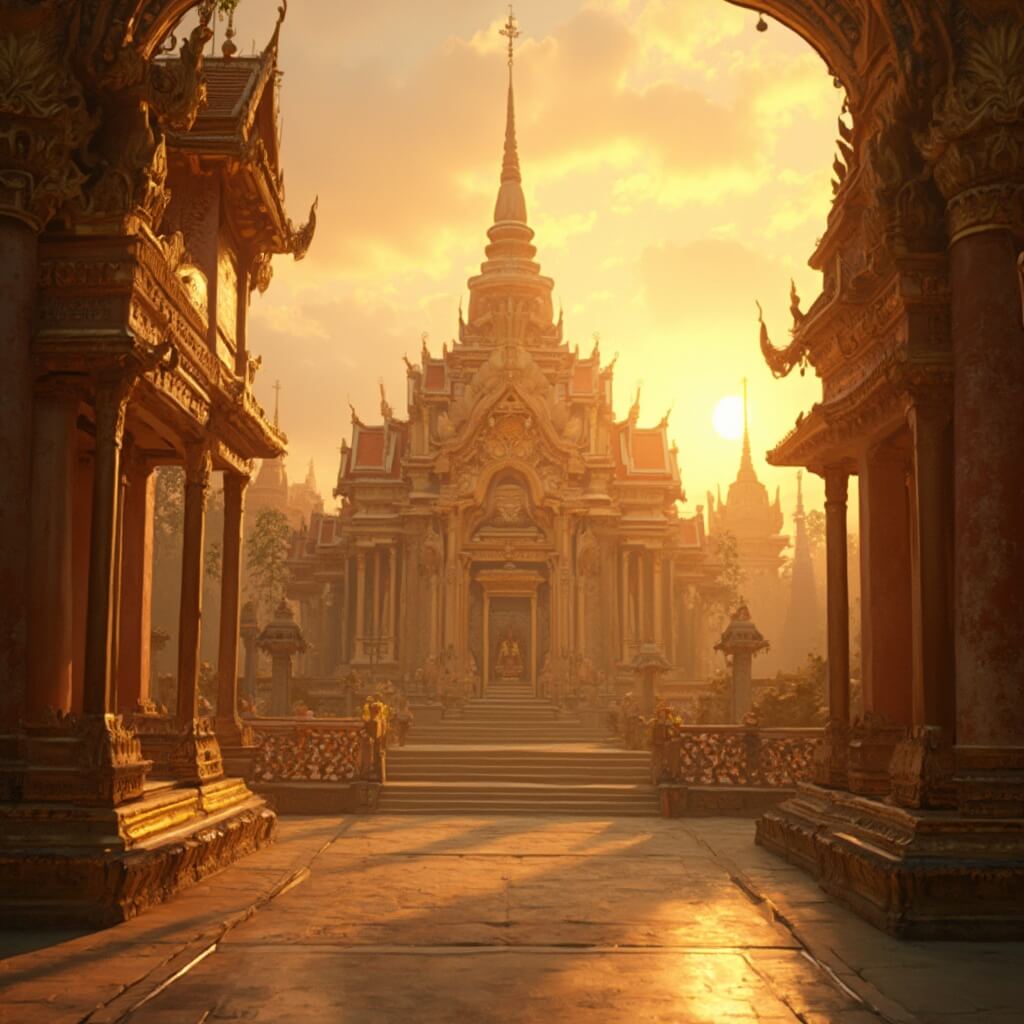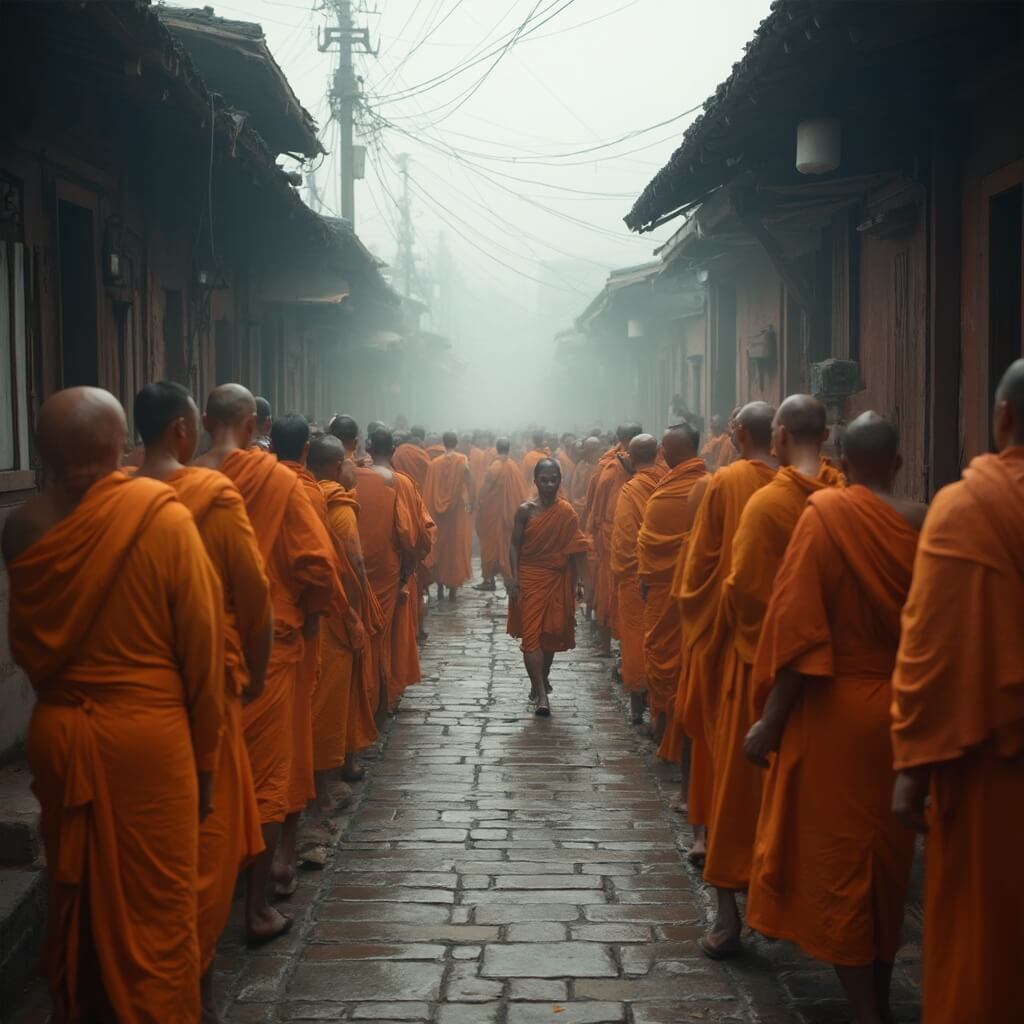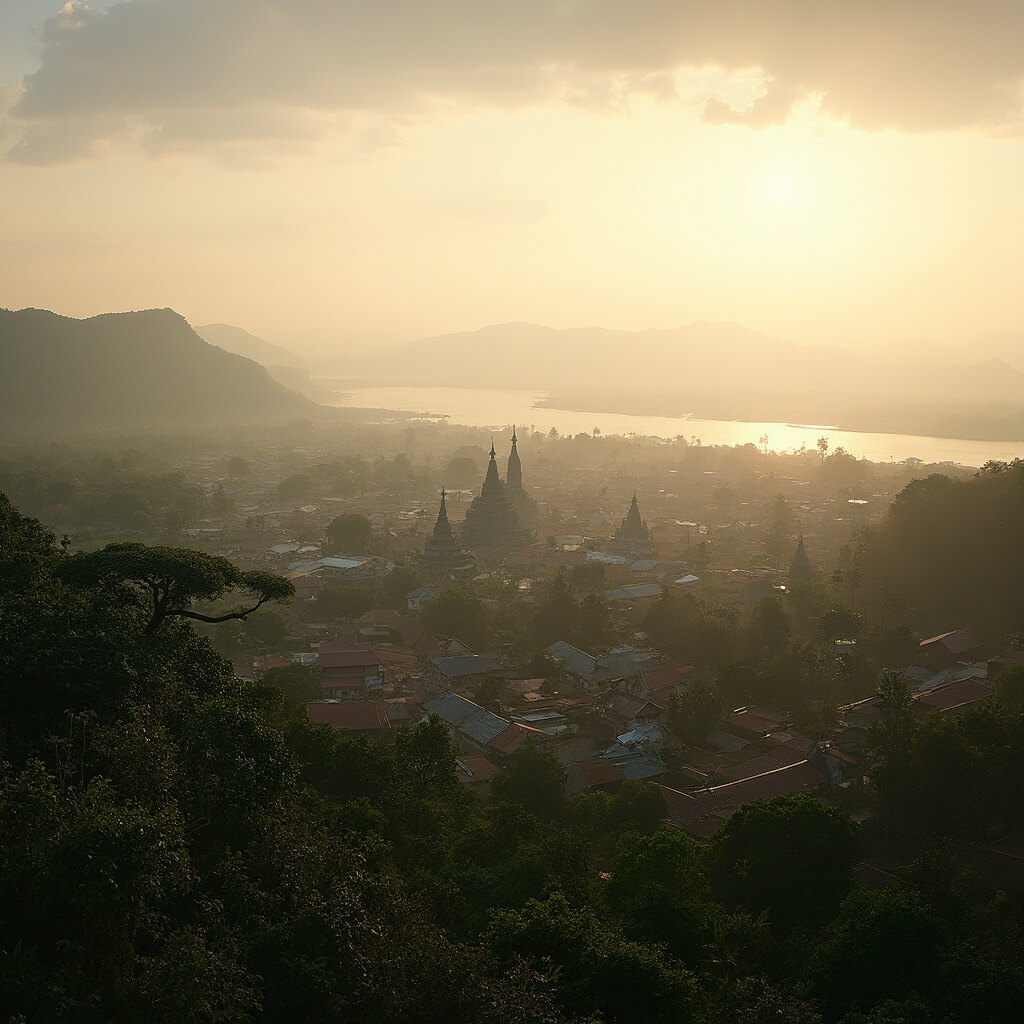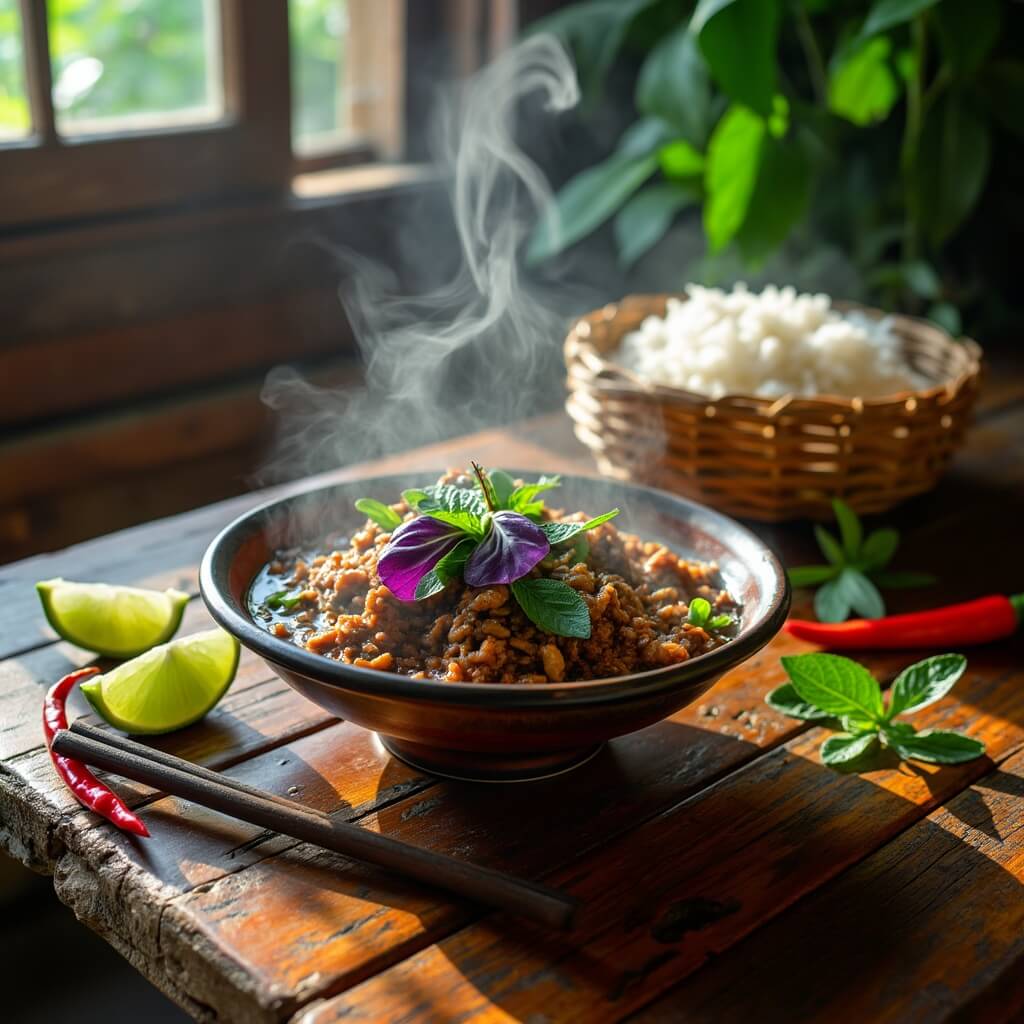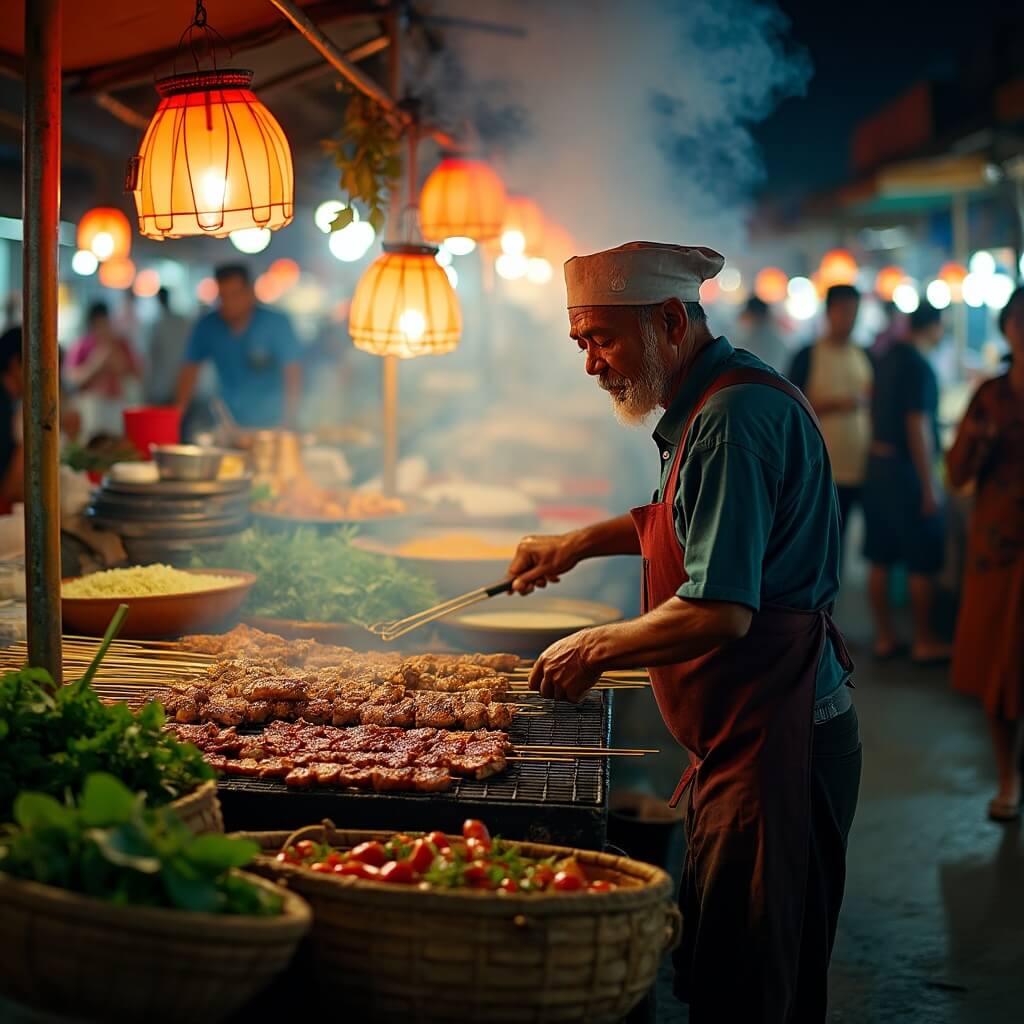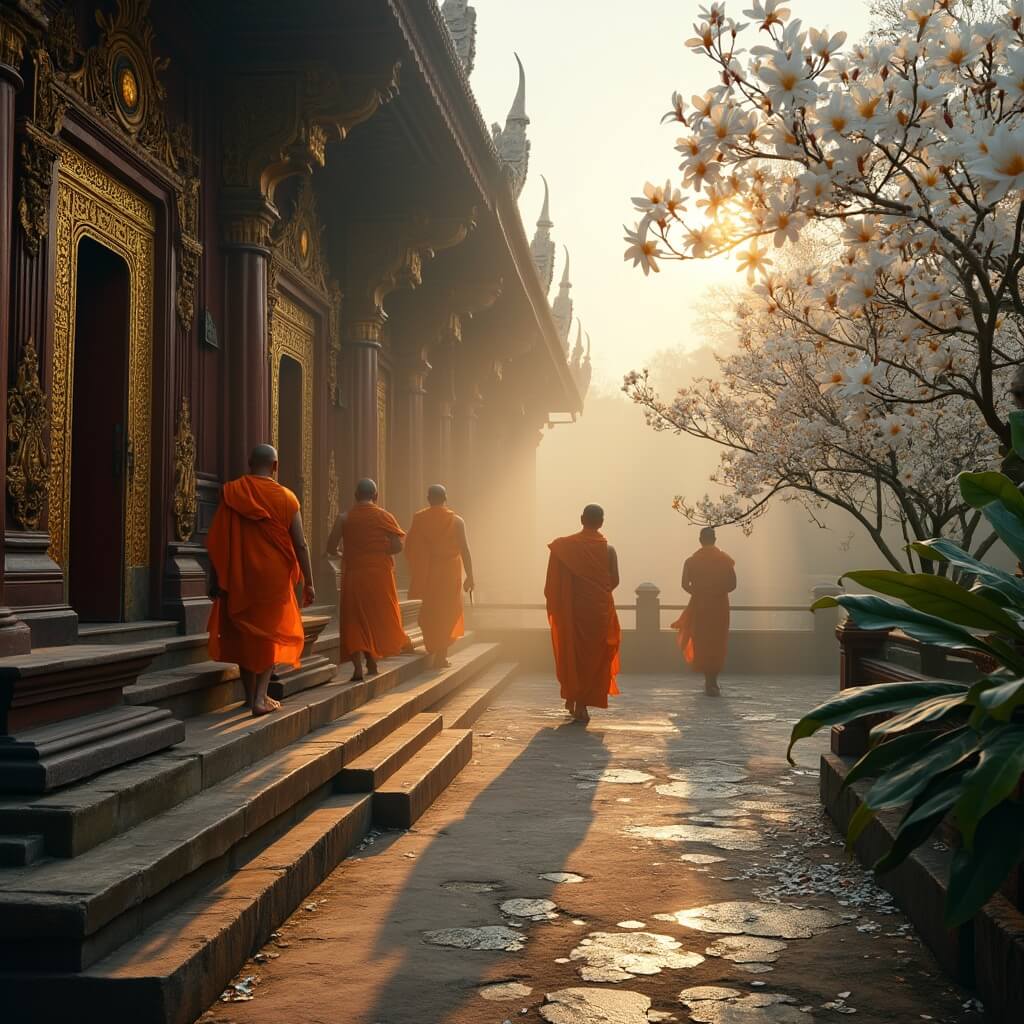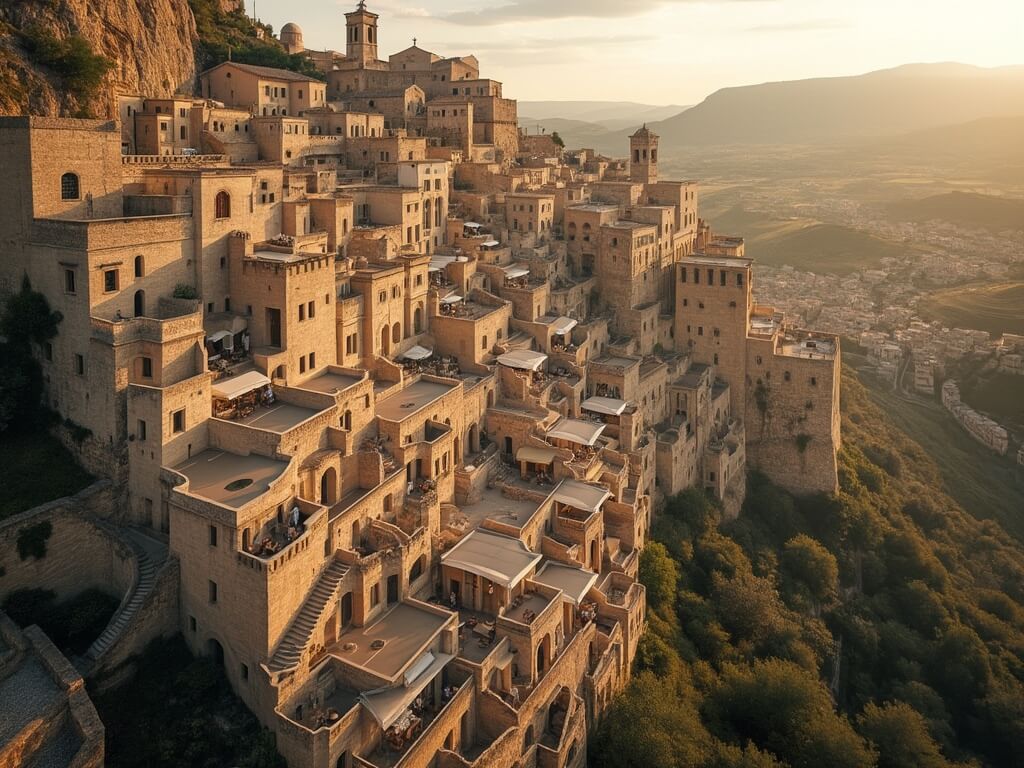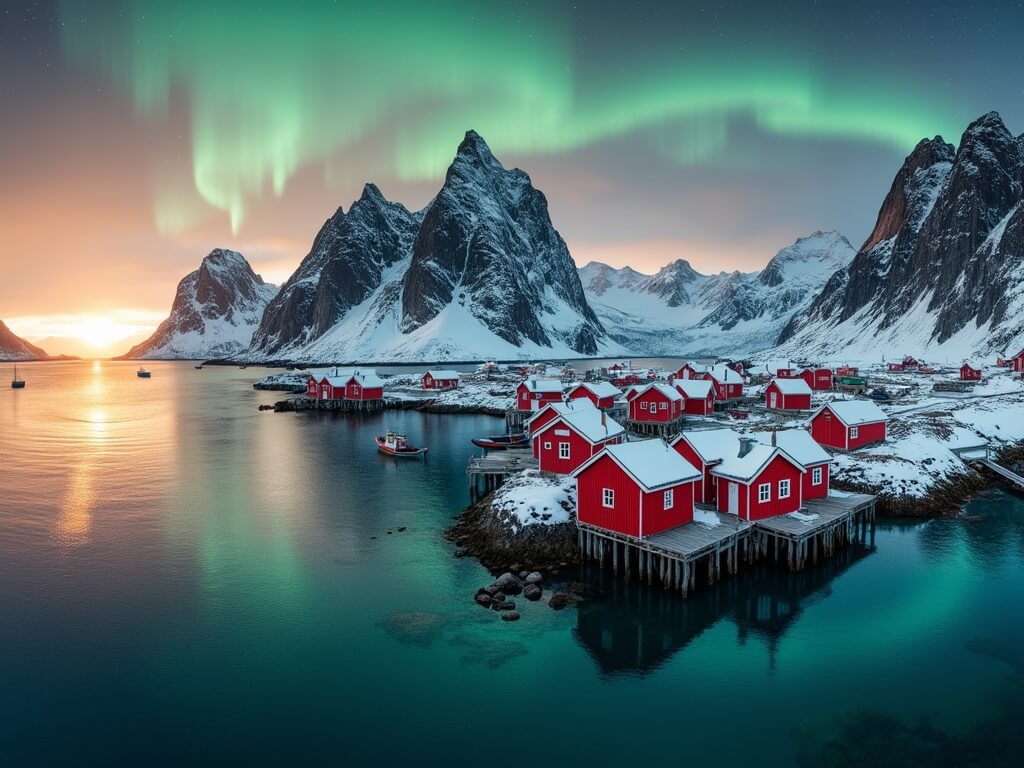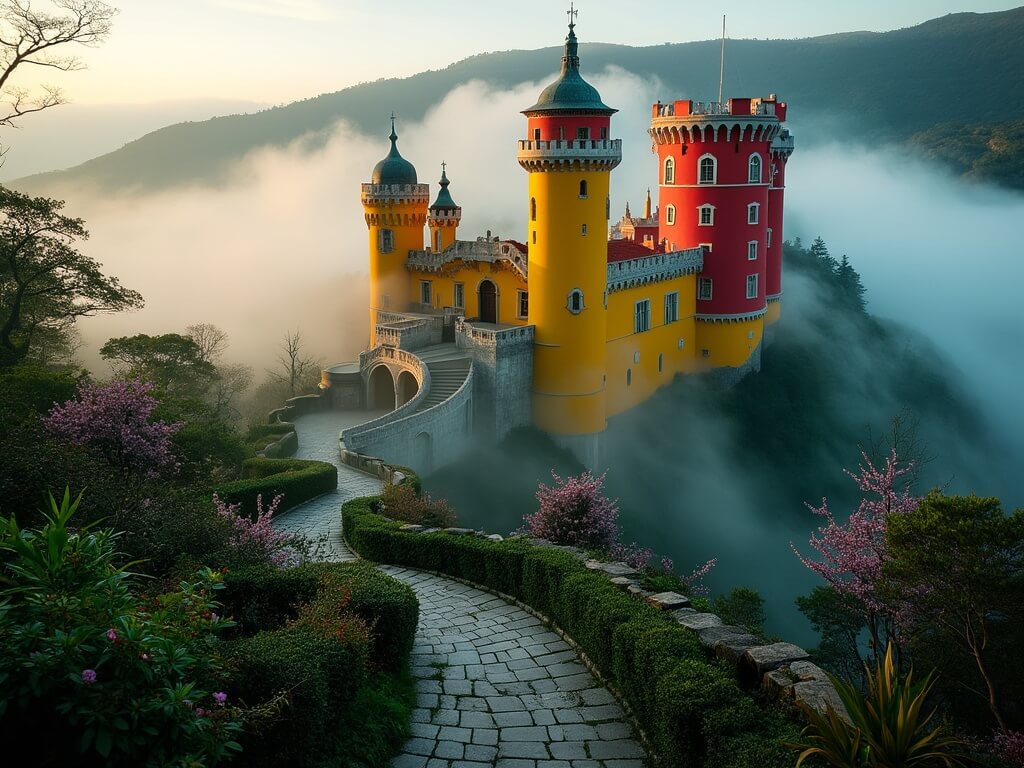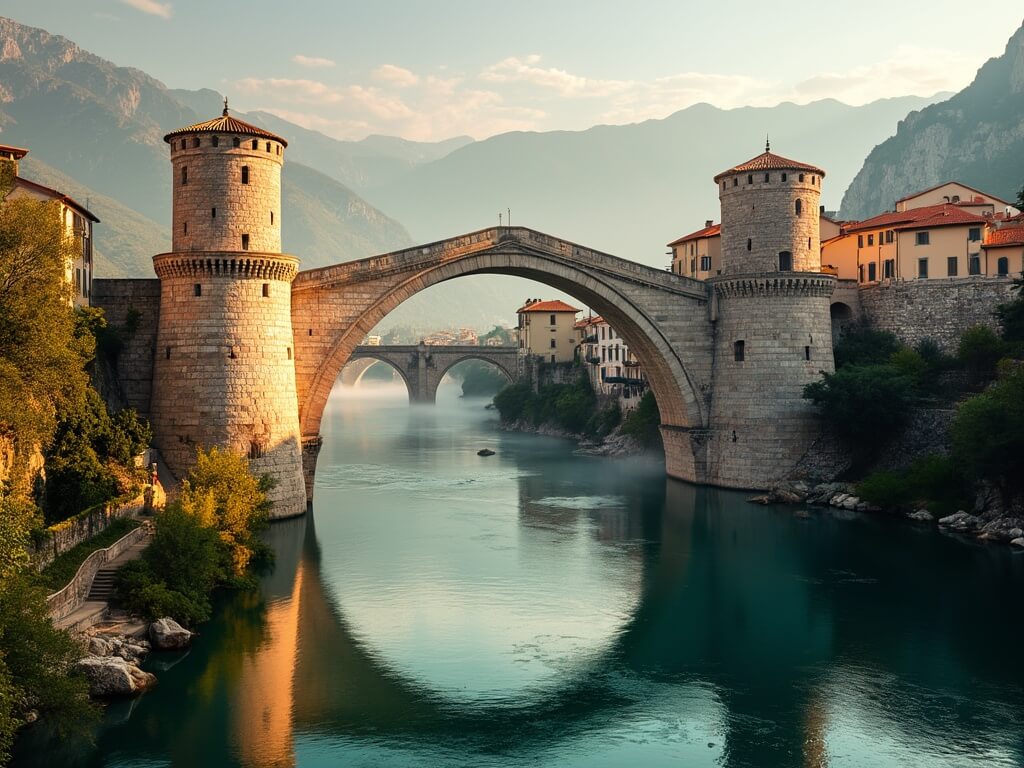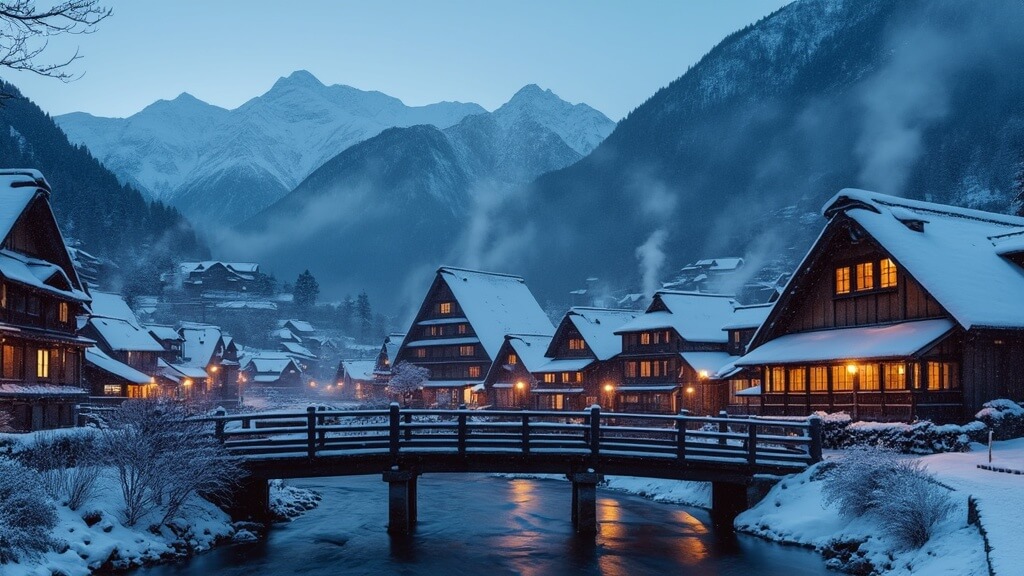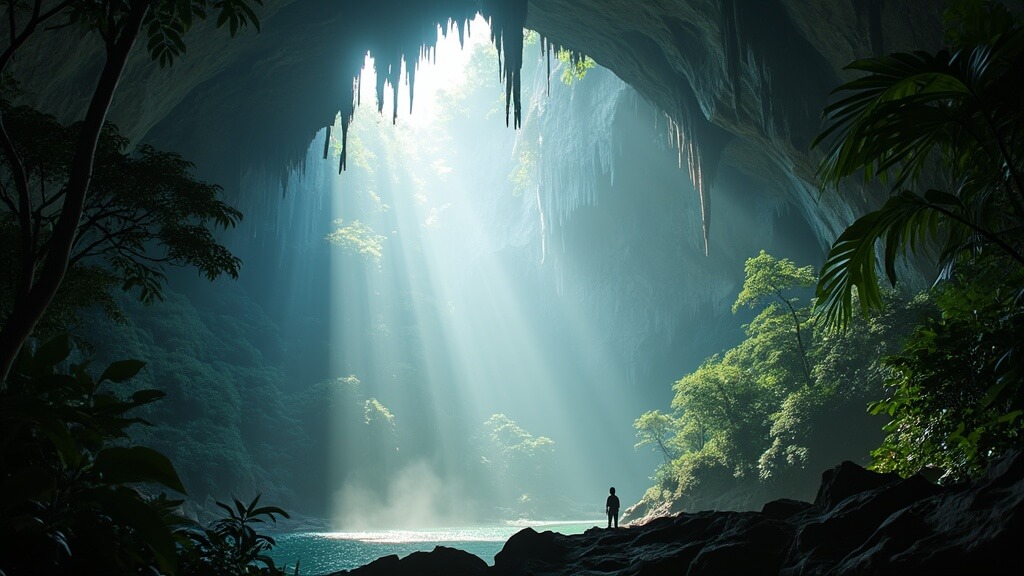Have you ever dreamed of discovering a place where golden Buddhist temples dance with French colonial architecture, creating a mesmerizing cultural tapestry? Welcome to Luang Prabang, Laos’ hidden gem nestled at the magical confluence of the Mekong and Nam Khan rivers.
Why Luang Prabang Steals Travelers’ Hearts
Imagine a UNESCO World Heritage town where saffron-robed monks glide silently through streets lined with elegant French villas, where ancient temples shimmer with gold and history breathes through every cobblestone. This isn’t a fantasy – this is Luang Prabang.
A Spiritual Haven with Colonial Charm
My first encounter with this extraordinary town was like stepping into a living museum. The moment I arrived, the rhythmic chants from nearby monasteries and the elegant colonial architecture transported me to another world.
The Buddhist Soul of Luang Prabang
With over 30 active temples, spirituality isn’t just a practice here – it’s the heartbeat of daily life. Every morning, the sacred Tak Bat alms-giving ceremony unfolds like a timeless ritual:
- Monks in saffron robes walk silently at dawn
- Locals offer food as an act of profound spiritual merit
- Visitors watch in respectful silence
Temples That Will Take Your Breath Away
Wat Xieng Thong: The Golden City Temple
This 16th-century marvel isn’t just a temple – it’s a masterpiece. Known as the “Golden Tree Monastery“, it survived invasions and stands as a testament to Lao architectural brilliance.
Key highlights:
- Intricate Tree of Life mosaic
- Golden stupas that glint in sunlight
- Complex architectural ensemble representing centuries of spiritual craftsmanship
French Colonial Elegance: A Architectural Love Story
From 1893 to 1953, French colonial influence transformed Luang Prabang. The result? An architectural symphony blending traditional Lao design with European sophistication.
Standout features:
- Royal Palace Museum: A stunning fusion of Lao and Beaux-Arts styles
- Preserved shop-houses with wide balconies
- Strict preservation rules ensuring no modern highrises disrupt the historic charm
Natural Wonders Beyond the Town
Luang Prabang isn’t just about temples and architecture. Nature here is equally spellbinding:
- Mount Phousi: Climb 300 steps for panoramic town views
- Kuang Si Waterfalls: Turquoise cascades perfect for swimming
- Pak Ou Caves: Thousands of Buddha statues along the Mekong River
A Personal Moment of Reflection
During my visit, watching the sunrise from Mount Phousi, I realized Luang Prabang isn’t just a destination. It’s a profound experience that reconnects you with history, spirituality, and the delicate dance between tradition and change.
The town whispers stories of centuries past, inviting travelers to pause, observe, and immerse themselves in its unique rhythm. As the morning mist lifted and temple bells rang softly, I understood why travelers fall in love with this extraordinary place.
The blend of spiritual tranquility and architectural beauty creates a magnetic energy that pulls you into its embrace, making you want to explore every hidden corner and listen to every unspoken story.
Wandering through streets where golden temple spires meet elegant French balconies, one thing becomes clear: Luang Prabang is not just a location. It’s a living, breathing narrative of cultural harmony.
The scent of frangipani mixed with fresh baguettes, the sound of distant temple bells, the sight of monks walking past colonial buildings – these sensory threads weave a tapestry that captures the essence of this remarkable town.
The morning light was casting long shadows across ancient temples, promising more discoveries just beyond the horizon.
Related UNESCO and Cultural Destinations
If you loved reading about Luang Prabang, you may also enjoy:
- Shirakawa-go, Japan: A UNESCO Village of Steep-Roofed Farmhouses
- Matera, Italy: Ancient Cave Dwellings Transformed into Stylish Stays
The Culinary Journey: Where Flavors Tell Stories
Ever wondered what happens when French culinary traditions marry Lao ingredients? Culinary magic, that’s what.
Luang Prabang’s dining scene is a delicious testament to cultural fusion. French bakeries sit alongside traditional Lao street food stalls, creating a gastronomic landscape that’s utterly unique.
Mornings begin with crisp baguettes and strong Lao coffee — a ritual that perfectly symbolizes the town’s dual heritage. Local specialties like laap (spicy meat salad) and sticky rice share menu space with perfectly crafted croissants.
Street Food: The Heartbeat of Local Culture
The night market transforms into a culinary playground as darkness falls. Stalls brim with:
- Fresh Mekong river fish
- Grilled meats
- Local herbs and spices
- Handmade delicacies passed through generations
Sustainable Tourism: Walking the Delicate Line
Luang Prabang faces a critical challenge: preserving its soul while welcoming travelers. UNESCO’s heritage status acts like a protective shield, ensuring the town doesn’t lose its authentic character.
Local initiatives are emerging that turn tourism into a collaborative experience:
- Community-led cooking classes
- Artisan workshops preserving traditional crafts
- Homestay programs connecting travelers with local families
The Economic Dance: Tourism’s Double-Edged Sword
Every visitor leaves an imprint. Some positive, some potentially destructive.
The town generates significant income through tourism, but local leaders remain vigilant. They understand that maintaining cultural integrity matters more than short-term economic gains.
Hidden Experiences: Beyond the Guidebook
Want to experience Luang Prabang like a local? Here are insider tips:
- Wake up before sunrise for the alms-giving ceremony
- Rent a bicycle and explore narrow side streets
- Learn basic Lao phrases
- Participate in a traditional craft workshop
- Visit during smaller festivals for authentic experiences
When to Visit: Timing is Everything
Pro traveler tip: November to March offers the most comfortable weather. Cool temperatures and minimal rainfall make exploration a joy.
Avoid the rainy season (June–October) unless you’re comfortable with sudden downpours and potential travel disruptions.
Practical Traveler’s Toolkit
Essential preparation ensures a smooth journey:
- Bring modest clothing for temple visits
- Carry cash — many places don’t accept cards
- Learn basic cultural etiquette
- Get travel insurance
- Be prepared for limited English outside tourist zones
A Final Reflection: Why Luang Prabang Matters
This isn’t just another destination. It’s a living museum where history breathes, cultures intertwine, and every street corner tells a story.
Luang Prabang represents something profound: the possibility of cultural harmony. Where French colonial elegance meets Buddhist spirituality, where tradition doesn’t just survive but thrives.
As travelers, we’re not just observers. We’re participants in an ongoing narrative of human connection.
Your Next Step
Close your eyes. Imagine golden temple spires catching morning light. Hear distant monk chants mixing with French café conversations.
Luang Prabang isn’t waiting to be discovered. It’s waiting to be experienced.
Pack light. Bring curiosity. Leave expectations behind.
Your Luang Prabang adventure begins now.
Explore More Cultural Destinations
- Mostar, Bosnia: Ottoman History & Stone Bridges
- Sintra, Portugal: Whimsical Palaces in Lush Hills
- Phong Nha, Vietnam: Jungle Treks & Cavernous Wonders
- Timeless Mediterranean Homes
- Mediterranean Interior Design & Heritage

